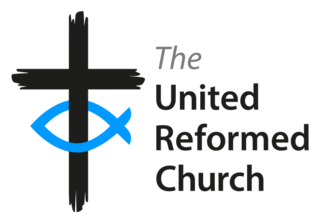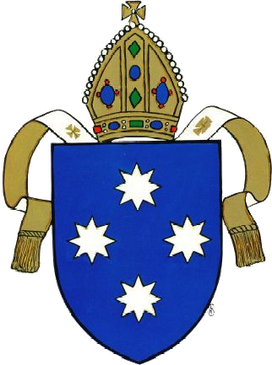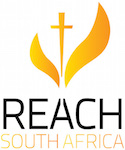
The Anglican Communion is the third largest Christian communion after the Roman Catholic and Eastern Orthodox churches. Founded in 1867 in London, the communion has more than 85 million members within the Church of England and other autocephalous national and regional churches in full communion. The traditional origins of Anglican doctrine are summarised in the Thirty-nine Articles (1571). The archbishop of Canterbury in England acts as a focus of unity, recognised as primus inter pares, but does not exercise authority in Anglican provinces outside of the Church of England. Most, but not all, member churches of the communion are the historic national or regional Anglican churches.
Anglicanism is a Western Christian tradition which developed from the practices, liturgy, and identity of the Church of England following the English Reformation, in the context of the Protestant Reformation in Europe. It is one of the largest branches of Christianity, with around 110 million adherents worldwide as of 2001.

Anglo-Catholicism comprises beliefs and practices that emphasise the catholic heritage and identity of the various Anglican churches.

The United Reformed Church (URC) is a Protestant Christian church in the United Kingdom. As of 2022 it had approximately 40,000 members in 1,284 congregations with 334 stipendiary ministers.

The Diocese of Sydney is a diocese in Sydney, within the Province of New South Wales of the Anglican Church of Australia. The majority of the diocese is evangelical and low church in tradition.
In Anglican Christianity, low church refers to those who give little emphasis to ritual. The term is most often used in a liturgical sense, denoting a Protestant emphasis, whereas "high church" denotes an emphasis on ritual, often Anglo-Catholic.

The Church Association was an English evangelical Anglican organisation founded in 1865. It was particularly active in opposition to Anglo-Catholicism, ritualism, and the Oxford Movement. Founded in 1865 by Richard P. Blakeney, the association stated in its first annual report that the objectives of the association were, "To uphold the principles and order of the United Church of England and Ireland, and to counteract the efforts now being made to assimilate her services to those of the Church of Rome."

The Reformed Evangelical Anglican Church of South Africa (REACH-SA), known until 2013 as the Church of England in South Africa (CESA), is a Christian denomination in South Africa. It was constituted in 1938 as a federation of churches. It appointed its first bishop in 1955. It is an Anglican church and it relates closely to the Sydney Diocese of the Anglican Church of Australia, to which it is similar in that it sees itself as a bastion of the Reformation and particularly of reformed doctrine.

The Reformed Episcopal Church (REC) is an Anglican church of evangelical Episcopalian heritage. It was founded in 1873 in New York City by George David Cummins, a former bishop of the Protestant Episcopal Church.
The Church of England (Continuing) is part of the Continuing Anglican Movement. Although the church was widely discussed in Anglican circles at the time of its founding in 1994, it has not achieved significant growth since that time.
Reform was a conservative evangelical organisation within Evangelical Anglicanism, active in the Church of England and the Church of Ireland.
The Society of St John the Evangelist (SSJE) is an Anglican religious order for men. The members live under a rule of life and, at profession, make monastic vows of poverty, celibacy and obedience.
Anglican doctrine is the body of Christian teachings used to guide the religious and moral practices of Anglicans.
Conservative evangelicalism is a term used in the United Kingdom to describe a theological movement found within evangelical Protestantism and is sometimes simply synonymous with evangelical within the United Kingdom. The term is used more often in the first sense, but conservative evangelicals themselves tend to use it in the second. Conservative evangelicals are sometimes called fundamentalists, but typically reject that label and are keen to maintain their distinct identity, which is more Reformed. Reformed fundamentalism shares many of the characteristics of conservative evangelicalism. In this sense, conservative evangelicalism can be thought of as distinct from liberal evangelicalism, open evangelicalism, and charismatic evangelicalism. Some conservative evangelical groups oppose women ministers or women preachers in mixed congregations.
The Anglican Pacifist Fellowship (APF) is a body of people within the Anglican Communion who reject war as a means of solving international disputes, and believe that peace and justice should be sought through nonviolent means.

The 1928 Book of Common Prayer, sometimes known as the Deposited Book, is a liturgical book which was proposed as a revised version of the Church of England's 1662 Book of Common Prayer. Opposing what they saw as an Anglo-Catholic revision that would align the Church of England with the Catholic Church—particularly through expanding the practice of the reserved sacrament—Protestant evangelicals and nonconformists in Parliament put up significant resistance, driving what became known as the Prayer Book Crisis.

Churchman is an evangelical Anglican academic journal published by the Church Society. It was formerly known as The Churchman and started in 1880 as a monthly periodical before moving to quarterly publication in 1920. The name change to "Churchman" came in 1977. The editor-in-chief is Peter Jensen. In September 2020 the journal was re-named The Global Anglican.
The Latimer Trust is a conservative evangelical Christian think tank in the United Kingdom.

Evangelical Anglicanism or evangelical Episcopalianism is a tradition or church party within Anglicanism that shares affinity with broader evangelicalism. Evangelical Anglicans share with other evangelicals the attributes of "conversionism, activism, biblicism and crucicentrism" identified by historian David Bebbington as central to evangelical identity. The emergence of evangelical churchmanship can be traced back to the First Great Awakening in America and the Evangelical Revival in Britain in the 18th century. In the 20th century, prominent figures have included John Stott and J. I. Packer.
The Church of England Evangelical Council (CEEC) is an association of mainly conservative evangelical Anglican members of the Church of England. It self-describes as the collective voice of all evangelicals within the Church of England, and states its aim "to promote and maintain orthodox evangelical theology and ethics at the heart of the Church of England". It has been described as theologically conservative. It was founded in 1960 by the Anglican clergyman John Stott. It is a registered with the Charity Commission for England and Wales: amongst its stated activities is the "promotion of consultation between evangelical Anglican leaders" and "to encourage and interact with evangelicals within the Church of England".














